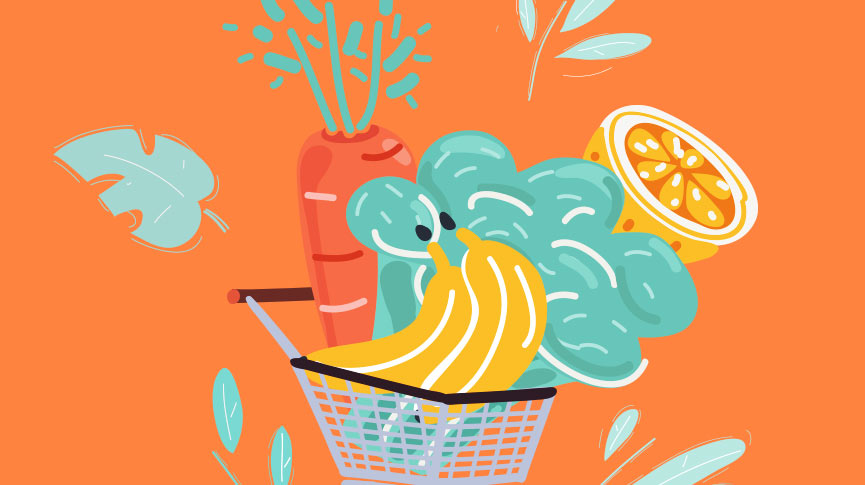Plant-based Pregnancy… Is my baby safe?

“You must be so excited”, “don’t forget to take your prenatal”, “make sure you’re getting lots of healthy animal fats and protein!” All comments I’ve heard from people during the past 7 months. All with good intentions.
However, the latter is where it can get a little tricky.
It’s fun to see the faces of those around you light up while talking about your pregnancy, as it is such an exciting time for everyone (even your nail lady, trust me when I say no one will be more excited than your nail lady). That said, it’s natural that the people around you will be quick to word vomit all of their advice on you. Which can be great! Or not…
On one note, it’s encouraging to feel loved and supported in a time that can be particularly trying. My advice? Remember: pregnancy and parenting is NOT one size fits all.
The Way it’s Always Been…
Things have been done a certain way for a very long time. Often, new moms don’t feel confident challenging those things because there is such a valuable risk at stake. We lean towards trusting everything told to us by those who have had children, rather than doing our own research or even trusting our gut.
A good majority of the things we are told to avoid or incorporate more reflect our diet. It’s clear to me that the people who told me that it was imperative to eat animal fats and proteins for my baby to thrive are stuck on the idea that what they did is the only way. I’m here to tell you that’s not the case.
An Alternative Way of Eating
“Plant-based or plant-forward eating patterns focus on foods primarily from plants. This includes not only fruits and vegetables, but also nuts, seeds, oils, whole grains, legumes, and beans. It doesn’t mean that you are vegetarian or vegan and never eat meat or dairy. Rather, you are proportionately choosing more of your foods from plant sources.” – Kathrine D. McManus, Director of the Department of Nutrition at Brigham and Women’s Hospital, a teaching affiliate of Harvard Medical School.
I like this definition of plant-based eating because it, in my opinion, explicitly states what it means to be plant-BASED.
It is not exclusively vegan or vegetarian. It means that the large majority of your diet is compiled of plant, whole, unprocessed foods. To me, this means you might have dairy every now and then. Or eat a piece of fish if you feel like it. It doesn’t put restrictions on what you CAN and CANNOT eat or put you in a box. It’s about being mindful, healthy, and making your own decisions about what to eat rather than following someone else’s plan.
How Safe is Plant-based Really?
I have, for seven whole months now, grown a perfectly healthy little girl without one bite of chicken, egg, cow or pig. I have, very easily, fulfilled my nutrient checklist on a daily basis with plant-based foods like fruits, vegetables, nuts, seeds, legumes, WHOLE, unprocessed foods. I refer to this way of eating as conscious consumption.
Meaning, I am mindful of what is going into my body, how it will serve me, and what other foods I might need to include each day to make sure all of my needs are met. The mere thought that having a diet rich in whole plant foods might not be safe is wildly silly to me. When we are little, we are told things like “you must eat your fruits and vegetables,” and “an apple a day keeps the doctor away.”
That’s all for good reason, so why does that way of thinking dissolve when we become adults? What gives us the impression that plant foods are not adequate when they actually carry the highest amount of nutrients?
But… Protein???
The number one concern when it comes to people who will question your non-meat based diet is easily protein. You will undoubtedly face people who fear you are hurting your baby by depriving them of needed protein, but that is simply untrue.
Your baby will indeed take an increasing amount of your nutrient supply as they grow, which only means you’ll have to be aware of consuming a little more than usual, definitely incorporating protein in every meal.
There are tons of plant-based sources of protein including tofu, tempeh, soybeans, lentils, chickpeas, quinoa, seitan, the list goes on. If you are ever worried you might be deficient somewhere, ask to have your blood tested. There is nothing wrong with wanting to stay informed and on top. Iron deficiency is common in pregnancy, especially among women who do not eat meat. A way to prevent or combat that deficiency is by making sure you are eating LOTS of iron-rich foods.
Examples of plant-based foods high in iron are legumes, grains, nuts, and seeds. Additionally, it’s good to note that calcium and egg protein inhibit iron absorption in the body, meaning if you do eat dairy and/or eggs, try to avoid it when you’re getting your iron-rich foods in. Vitamin C also aids in the absorption of iron, so being aware of pairing foods rich in Vitamin C with your meals high in iron is always a good idea!
Trust Your Gut
To be 100% transparent, I do occasionally eat fish, and I will have dairy cheese if I feel like it. But, this is because I made the decision to (and, well, CHEESE), not because I feel like I’m supposed to. And that is the bulk of it all. I am not here to tell you what you should or shouldn’t eat, and neither should anyone else. This is not to say you should ignore advice from your O/B or midwife. I only mean that it is my strong opinion that you should trust your body. Listen to what it’s telling you it needs.
Women have been bearing children for centuries with means and resources far less than what is available to us in this generation. We trusted our bodies in the process of forming our little one in their earliest and most vulnerable stages. Let us also trust that it knows how to carry them to us earth-side.
Please note that advice offered by Intimina may not be relevant to your individual case. For specific concerns regarding your health, always consult your physician or other licensed medical practitioners.

Bailey is a soon-to-be new mom who goes against the grain. With a degree in communication studies, she has built a skincare company alongside her partner, which represents her lifestyle: natural, holistic, and non-toxic. Re-learning everything she knew her entire life, she began to grow her knowledge for all things natural. As an advocate for truth and women’s empowerment, her passion for writing and sharing her knowledge began to mature. Here at Intimina, she shares her experiences with pregnancy, sexual wellness, and women’s health from the perspective of a non-Western view.


